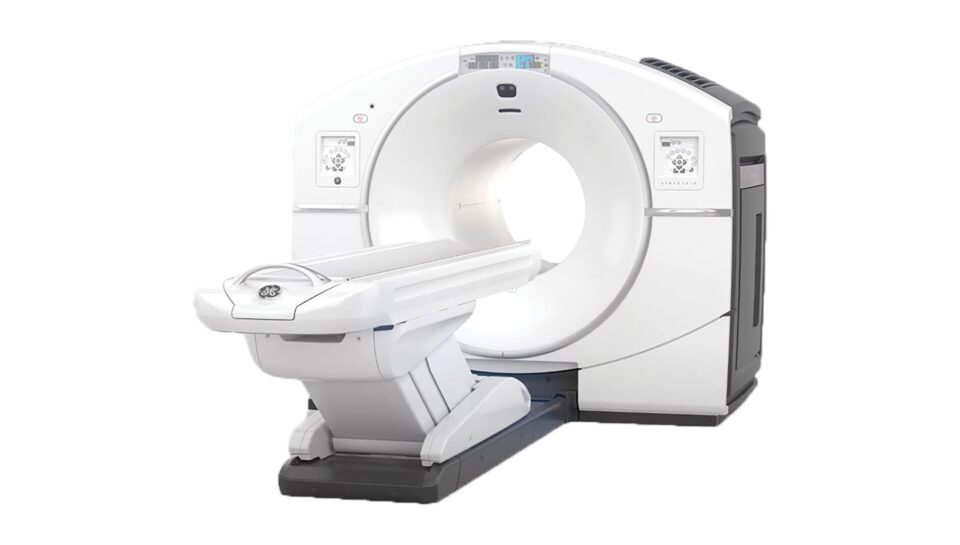Introduction
Positron Emission Tomography (PET) scanning is a revolutionary diagnostic imaging technique that provides unique insights into the metabolic and physiological processes within the body. At Apollo Hospitals Jabalpur, we leverage advanced PET scan technology to offer precise, early diagnosis and effective treatment planning. Recognized as one of the top jabalpur hospital for innovative diagnostic services, our PET scan facility plays a crucial role in managing a wide range of medical conditions—from cancer and cardiovascular diseases to neurological disorders.
In this comprehensive guide, we will explore the fundamentals of PET scans, how they work, their key features and benefits, clinical applications, and why choosing Apollo Hospitals Jabalpur ensures that you receive the best in diagnostic care.
What Is a PET Scan?
A PET scan is a nuclear medicine imaging technique that visualizes the metabolic activity within tissues. Unlike conventional imaging methods, which primarily focus on anatomical structures, PET scans detect changes at the cellular level by using a small amount of radioactive tracer. This tracer is typically a biologically active molecule (such as fluorodeoxyglucose, or FDG) that accumulates in areas of high metabolic activity.
Key Components of a PET Scan
- Radioactive Tracer: A safe, low-dose radioactive substance that targets specific cells or tissues.
- Detection System: Advanced detectors capture the gamma rays emitted by the tracer.
- Computer Processing: Sophisticated algorithms reconstruct images that reveal functional information about the body’s internal processes.
This innovative approach allows clinicians to identify early signs of disease, assess the effectiveness of treatments, and monitor the progression of various conditions.
How Does a PET Scan Work?
The PET scan process involves several critical steps designed to provide detailed functional imaging:
- Tracer Injection:
A small dose of a radioactive tracer is injected into the patient’s bloodstream. The tracer travels through the body and accumulates in areas with high metabolic activity, such as cancer cells. - Tracer Uptake Period:
After injection, there is a waiting period (usually 30-60 minutes) to allow the tracer to distribute and concentrate in the targeted tissues. - Imaging Acquisition:
The patient lies on a scanning table that slides into the PET scanner. The scanner detects gamma rays emitted from the tracer, which are then converted into digital signals. - Image Reconstruction:
A computer processes the signals to create detailed 3D images that represent the metabolic activity within the body. Areas of abnormal metabolic activity appear as “hot spots,” guiding clinicians to potential disease sites. - Analysis and Interpretation:
Radiologists and nuclear medicine specialists review the images to diagnose and evaluate the severity of conditions, guiding treatment decisions.
Key Features and Benefits of PET Scanning
1. Early Disease Detection
PET scans can identify abnormalities at the cellular level, often before anatomical changes become apparent. This early detection is vital for conditions such as cancer, where prompt treatment can significantly improve outcomes.
2. Comprehensive Functional Imaging
By providing insights into the metabolic processes of tissues, PET scans offer a unique perspective that complements traditional imaging techniques. This functional imaging helps in distinguishing between benign and malignant lesions, monitoring treatment responses, and evaluating the progression of diseases.
3. Enhanced Accuracy and Precision
The high sensitivity and specificity of PET scanning allow for accurate localization of disease. This precision is crucial for treatment planning, particularly in oncology, where determining the exact extent of a tumor can influence surgical and therapeutic approaches.
4. Non-Invasive and Safe
PET scans are non-invasive and use very low doses of radioactive material, ensuring patient safety while delivering high-quality diagnostic information. The procedure is well-tolerated and can be repeated as necessary for ongoing monitoring.
5. Versatile Applications
PET scans are versatile tools used in various medical specialties:
- Oncology: For tumor detection, staging, and monitoring treatment response.
- Neurology: To assess brain function, detect neurodegenerative diseases, and evaluate seizure disorders.
- 0Cardiology: For evaluating myocardial viability, identifying coronary artery disease, and assessing heart function.
- Infectious Diseases: To detect and monitor inflammatory processes and infections.
Clinical Applications of PET Scanning
Oncology
PET scans are instrumental in cancer care. They provide detailed images that help:
- Detect Tumors: Identify the presence of cancerous lesions in their early stages.
- Stage Cancer: Determine the extent and spread of tumors, aiding in accurate staging.
- Monitor Treatment Response: Evaluate the effectiveness of chemotherapy, radiation, or surgical interventions.
- Detect Recurrence: Identify potential recurrence of cancer during follow-up examinations.
Neurology
In neurology, PET scans offer valuable insights into brain metabolism and function:
- Dementia and Alzheimer’s Disease: Detect early metabolic changes in the brain associated with cognitive decline.
- Epilepsy: Identify seizure foci and assist in planning surgical interventions.
- Parkinson’s Disease: Evaluate dopaminergic activity, which is crucial in diagnosing and monitoring Parkinson’s disease.
Cardiology
PET scanning is increasingly used in cardiology to assess:
- Myocardial Viability: Determine areas of the heart muscle that are still viable despite reduced blood flow.
- Coronary Artery Disease: Evaluate the severity of blockages and the risk of future cardiac events.
- Cardiac Function: Provide detailed images of the heart to assess overall function and guide treatment decisions.
Other Applications
- Inflammatory and Infectious Diseases: PET scans help localize sites of infection or inflammation, guiding appropriate treatment.
- Research: PET imaging is a powerful tool in clinical research, helping to advance our understanding of various diseases and treatment effects.
The Patient Experience at Apollo Hospitals Jabalpur
Pre-Scan Consultation
At Apollo Hospitals Jabalpur, patient care begins with a thorough pre-scan consultation. Our experienced medical team explains the PET scan procedure, answers your questions, and provides detailed instructions to ensure optimal tracer uptake and image quality.
Comfortable and Efficient Procedure
Our PET scan suite is designed with patient comfort in mind. The procedure is quick, and the non-invasive nature of the scan minimizes discomfort. Our skilled technicians and compassionate staff ensure that you feel supported throughout the process.
Post-Scan Analysis and Follow-Up
After your scan, our expert radiologists analyze the images and discuss the results with your referring physician. This seamless integration of diagnostics and clinical care ensures that your treatment plan is tailored to your specific needs, leading to improved health outcomes.
Why Choose Apollo Hospitals Jabalpur for PET Scans?
As one of the leading jabalpur hospitals, Apollo Hospitals Jabalpur is dedicated to delivering state-of-the-art diagnostic imaging services. Here’s why our PET scan facility stands out:
- Cutting-Edge Technology: Our PET scanners are among the most advanced in the region, providing high-resolution, reliable imaging for accurate diagnosis.
- Expert Team: Our multidisciplinary team of radiologists, nuclear medicine specialists, and support staff is committed to excellence in patient care.
- Patient-Centric Approach: We prioritize your comfort and well-being, ensuring that every step of the process is tailored to your needs.
- Integrated Care: Our PET scan services are seamlessly integrated with other diagnostic and treatment modalities, allowing for a comprehensive approach to healthcare.
- Research and Innovation: Apollo Hospitals Jabalpur is at the forefront of medical research, continually updating our protocols to provide the latest advancements in diagnostic imaging.
Frequently Asked Questions (FAQs)
Q1: What is a PET scan, and how is it different from other imaging techniques?
A1: A PET scan is a nuclear medicine imaging technique that measures metabolic activity using a radioactive tracer. Unlike CT or MRI, which provide anatomical images, PET scans offer functional insights into how tissues and organs are working.
Q2: Is the radioactive tracer safe?
A2: Yes, the tracer used in a PET scan is administered in very low doses and is generally safe. The benefits of early and accurate diagnosis far outweigh the minimal risk associated with the procedure.
Q3: How long does a PET scan take?
A3: The entire process, including tracer injection, waiting time for tracer uptake, and scanning, typically takes about 1 to 2 hours.
Q4: What conditions can a PET scan help diagnose?
A4: PET scans are widely used in oncology for cancer detection and staging, in neurology for evaluating brain disorders, in cardiology for assessing heart function, and in various other applications such as detecting infections and inflammatory diseases.
Q5: How do I prepare for a PET scan?
A5: Your healthcare provider will give you specific instructions, which may include fasting for several hours before the scan. These guidelines help ensure that the tracer is effectively taken up by your tissues for optimal imaging.
Conclusion
The PET scan at Apollo Hospitals Jabalpur represents a significant advancement in diagnostic imaging, offering unparalleled accuracy, speed, and patient comfort. This cutting-edge technology not only facilitates early disease detection but also plays a crucial role in treatment planning and monitoring. As a leading jabalpur hospital, Apollo Hospitals Jabalpur is committed to providing you with the highest standards of care and innovation.
If you or a loved one could benefit from advanced diagnostic imaging, schedule your PET scan today at Apollo Hospitals Jabalpur. Our expert team is ready to guide you through every step of your healthcare journey, ensuring that you receive the most precise and compassionate care available.
Contact us now to book your PET scan appointment and take the first step toward better health.
For more information or to schedule an appointment, please visit us or call our dedicated helpline. Your journey to advanced, accurate diagnostic imaging begins at Apollo Hospitals Jabalpur—one of the most trusted jabalpur hospitals for comprehensive healthcare.





